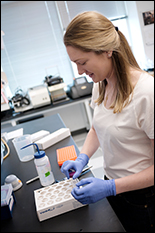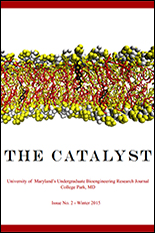News Story
Bentley Contributes to The Scientist Report on Bacterial Signaling in the GI Tract

Fischell Department of Bioengineering and Robert E. Fischell Distinguished Professor William E. Bentley contributed to a recent article in The Scientist, which discussed how researchers have shown that a bacterial signaling molecule can help reinstate beneficial bacterial populations in the guts of antibiotic-treated mice.
According to a Cell Reports study published March 19, researchers from the Instituto Gulbenkian de Ciencia in Oeiras, Portugal, have shown that "boosting the levels of a quorum-sensing molecule in the intestines of mice treated with a gut microbe-depleting antibiotic results in the repopulation of beneficial bacterial species," The Scientist author Anna Azvolinsky noted in her article, "Quorum-Sensing Molecule Modifies Gut Microbiota."
Bentley was quoted in the article saying, "While the vast majority of studies on the microbiome identify different bacteria present in the gastrointestinal tract, what is different and important about [this] approach... is in trying to manipulate the signaling in the GI tract."
Read the full article for more information about this research.
Published March 19, 2015








